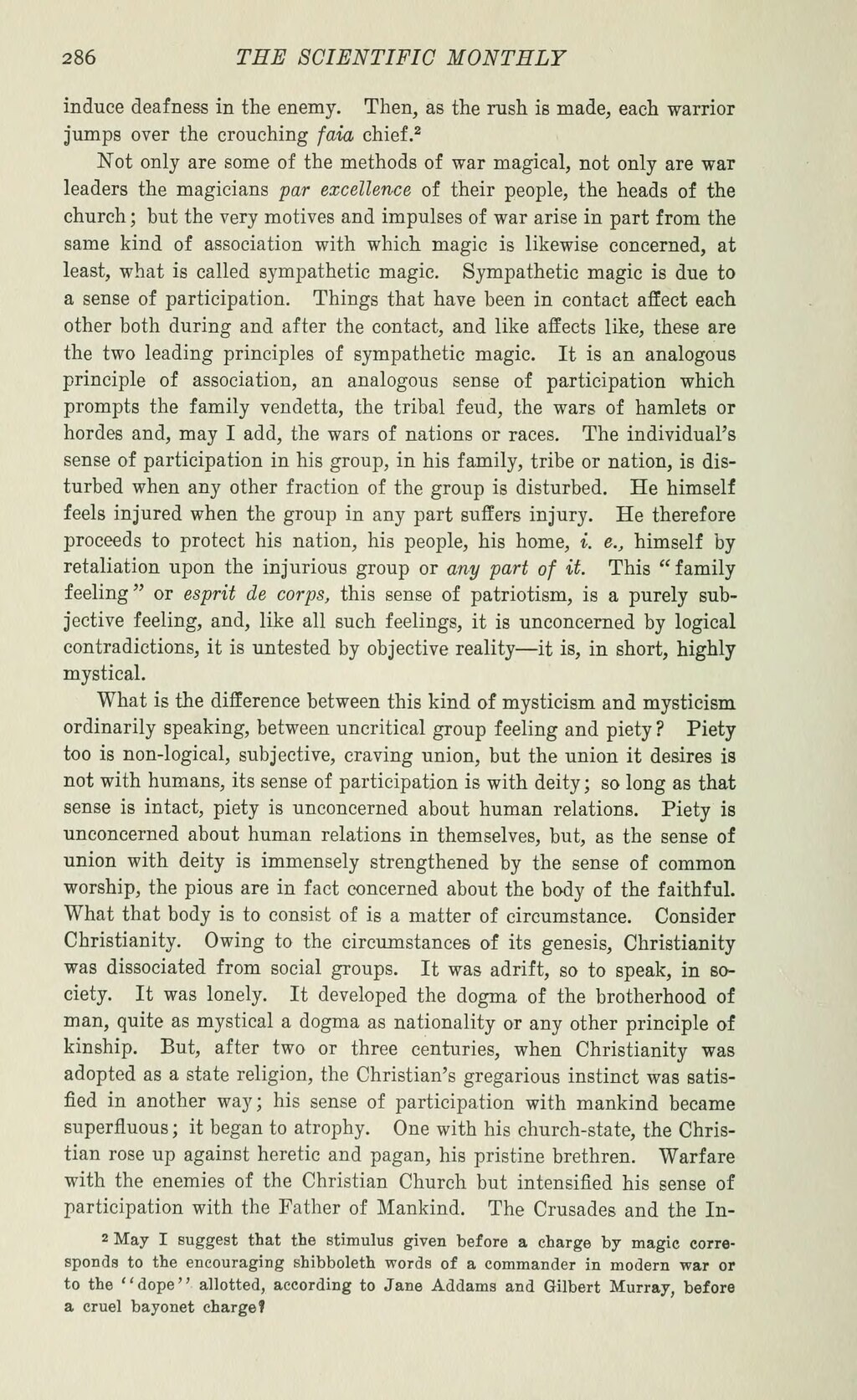induce deafness in the enemy. Then, as the rush is made, each warrior jumps over the crouching faia chief.[1]
Not only are some of the methods of war magical, not only are war leaders the magicians par excellence of their people, the heads of the church; but the very motives and impulses of war arise in part from the same kind of association with which magic is likewise concerned, at least, what is called sympathetic magic. Sympathetic magic is due to a sense of participation. Things that have been in contact affect each other both during and after the contact, and like affects like, these are the two leading principles of sympathetic magic. It is an analogous principle of association, an analogous sense of participation which prompts the family vendetta, the tribal feud, the wars of hamlets or hordes and, may I add, the wars of nations or races. The individual's sense of participation in his group, in his family, tribe or nation, is disturbed when any other fraction of the group is disturbed. He himself feels injured when the group in any part suffers injury. He therefore proceeds to protect his nation, his people, his home, i. e., himself by retaliation upon the injurious group or any part of it. This "family feeling" or esprit de corps, this sense of patriotism, is a purely subjective feeling, and, like all such feelings, it is unconcerned by logical contradictions, it is untested by objective reality—it is, in short, highly mystical.
What is the difference between this kind of mysticism and mysticism ordinarily speaking, between uncritical group feeling and piety? Piety too is non-logical, subjective, craving union, but the union it desires is not with humans, its sense of participation is with deity; so long as that sense is intact, piety is unconcerned about human relations. Piety is unconcerned about human relations in themselves, but, as the sense of union with deity is immensely strengthened by the sense of common worship, the pious are in fact concerned about the body of the faithful. What that body is to consist of is a matter of circumstance. Consider Christianity. Owing to the circumstances of its genesis, Christianity was dissociated from social groups. It was adrift, so to speak, in society. It was lonely. It developed the dogma of the brotherhood of man, quite as mystical a dogma as nationality or any other principle of kinship. But, after two or three centuries, when Christianity was adopted as a state religion, the Christian's gregarious instinct was satisfied in another way; his sense of participation with mankind became superfluous; it began to atrophy. One with his church-state, the Christian rose up against heretic and pagan, his pristine brethren. Warfare with the enemies of the Christian Church but intensified his sense of participation with the Father of Mankind. The Crusades and the In-
- ↑ May I suggest that the stimulus given before a charge by magic corresponds to the encouraging shibboleth words of a commander in modern war or to the "dope" allotted, according to Jane Addams and Gilbert Murray, before a cruel bayonet charge?
